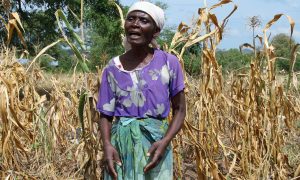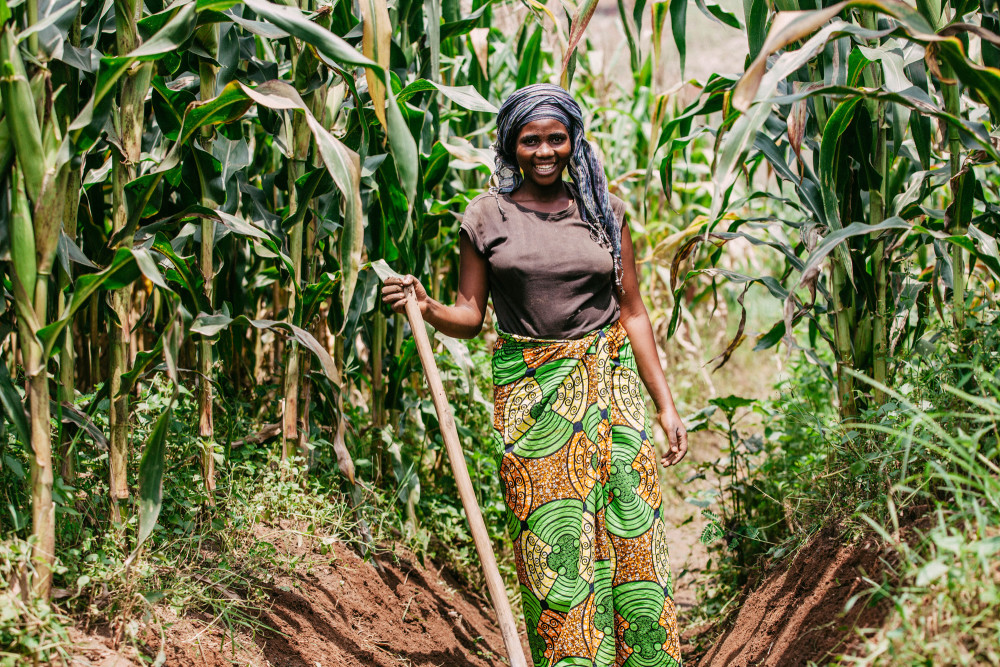Southern Africa has suffered through one of the worst droughts in decades and now small farmers face a long hungry season with growing food aid needs until the next harvest.

Given the growing uncertainty of rainfall in this region, many are turning to irrigation as a key strategy for securing future harvests. The problem, however, is that male and female farmers have deeply unequal rights to critical resources, including water.
Uneven access to water also complicates assumptions about the ability of commercial farming to deliver household food security in the African context.
The 2015-16 drought was the worst to hit Southern Africa in 35 years, leaving an estimated 32 million people in the region food insecure. This hunger will only deepen until March, 2017 when new harvests normally arrive.
Not all women farmers are equal
While women grow the majority of food in this region, public programmes and policies are skewed towards providing water for male livelihood activities. This bias undermines female farmers’ ability to adapt to climate change and weakens the food security of the region.
In the semi-arid, southern African country of Botswana, women rely heavily on irrigation to grow vegetables during the long dry season. These crops are produced for home consumption and to generate needed income.
While the government has provided much needed support for this activity in recent years, they have been disappointed with the results, even considering it an utter failure in some cases.
What these appraisals overlook is the critical role that water access plays in the success of a women’s vegetable production operation, and the overall way in which women’s farming activities are marginalised in the country.
In fact, differences in water access among female vegetable farmers in Botswana had a huge influence on whether or not commercial horticulture helps improve household food security.
Wealthy female farmers have the financial resources, or access to credit, to invest in boreholes. For these women, increasing commercialisation of vegetable production (or selling a larger share of their crop) leads to clear gains in household food security.
This contrasts with poorer female gardeners who can’t afford a well, and water their gardens with purchased tap water. From them, there are only modest food security gains that accompany increasing commercial gardening.
Still others get their water from a river, where the costs are much lower, and they do very well when they focus on feeding their families. Interestingly, this last group sees a decline in household food security when they begin selling more and consuming less of the vegetables they grow.
OPINION: The ‘invisible’ farmer and the global hunger debate
Why the difference in these outcomes? Wealthier female farmers with land can afford the upfront costs of a borehole, and often have the necessary connections to successfully engage with the market, allowing them to cover the costs of their initial investment and go on to make a reasonable profit that enhances their food security.
Those with lower water costs, the river water users, face less pressure to commercialise to cover costs, and do very well directly feeding their families rather that attempting to negotiate the vagaries of the marketplace.
Tap water users have the most difficult situation because they most commercialise to cover the cost of the water they are using, yet do not always have the connections to negotiate the marketplace, leading to modest income gains and minimal food security benefits.
Unequal resource access
These results bring to light at least two important issues related to food security, agriculture and resource access in Sub-Saharan Africa.
First, while increasing commercialisation of agriculture in Sub-Saharan Africa has been championed as a pathway to improved food security, this view neglects how access to resources is a complicating factor.
Growing more crops for the market may make sense for some, namely wealthy farmers who make the investments to secure water access and are commercially savvy. In other cases, selling more crops on the market may actually undermine food security.
OPINION: Climate change and female farmers in Botswana
Second, in Botswana there is a significant gender component to water access. The historical significance of the cattle industry, which is dominated by men, has meant that government agencies and programmes support the development of water sources for cattle to the exclusion of other agricultural activities.

